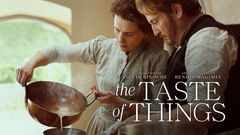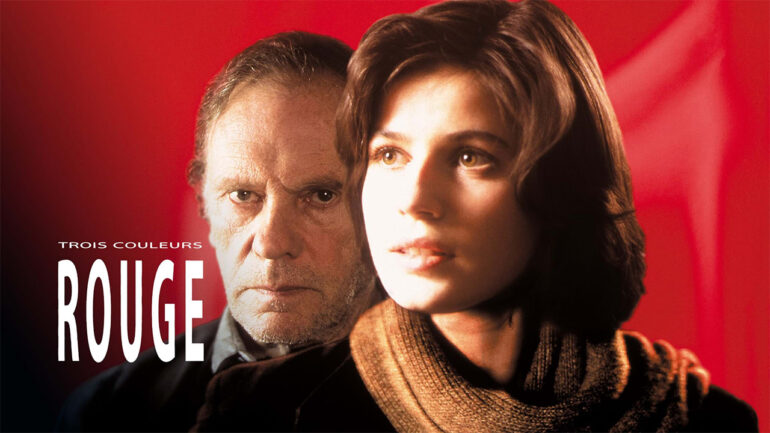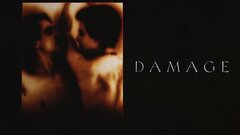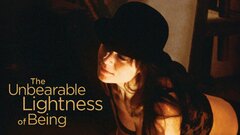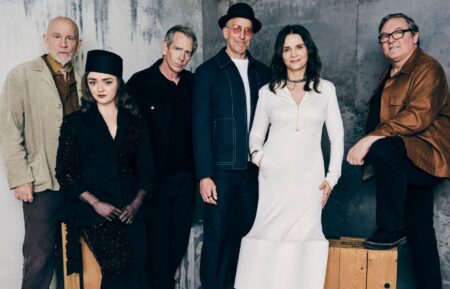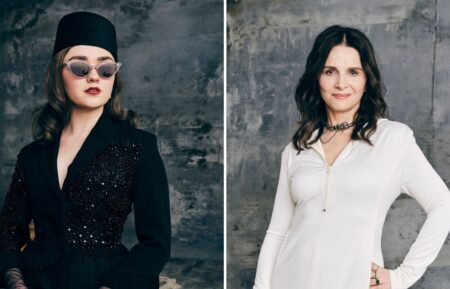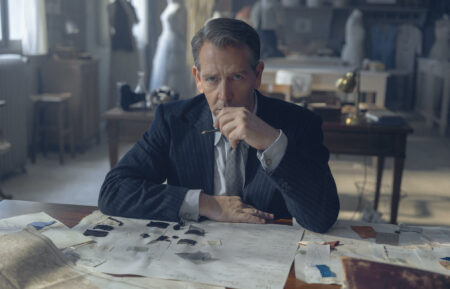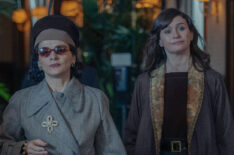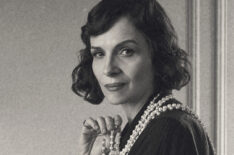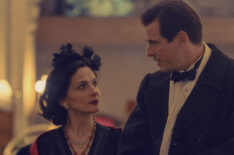A luminous national treasure of France, known affectionately as "La Binoche," Juliette Binoche became a famous and internationally recognized non-British, European actor. With an impeccable art house résumé, including "Rendez-vous" ("Rendezvous") (1985), "Mauvais Sang" ("Bad Blood"), "The Unbearable Lightness of Being" (1988), and "Les Amants du Pont-Neuf" ("The Lovers on the Bridge") (1991), Binoche cemented her reign as a critical darling with dazzling performances in "Trois couleurs: Bleu" ("Blue") (1993) and her Oscar-winning role in "The English Patient" (1996).
The ethereal, mysterious quality so uniquely Binoche still served her well after her Oscar win and second nomination for "Chocolat" (2000), as she continued to notch successes both commercial - "Dan in Real Life" (2007) - and artistic - "Le voyage du ballon rouge" ("Flight of the Red Balloon") (2008). A celebrated painter and dancer as well as global acting icon, Binoche earned one of the most impressive collections of acting awards and nominations. The sylph-like beauty enjoyed an exceedingly unique career, unwaveringly beloved by fans and critics alike.
Born March 9, 1964 in Paris, France, Juliette Binoche was the daughter of Jean-Marie Binoche, a director-actor-sculptor, and Monique Stalens, a teacher-director-actress. When they divorced, the four-year-old Binoche and her sister were sent to Catholic boarding school. She began her career as a teenager, appearing in productions of Molière, Ionesco and Pirandello. After studying at the National Conservatory of Dramatic Arts of Paris, Binoche secured an agent and joined a touring theater troupe, performing across France, Belgium and Switzerland. She debuted on the big screen with a one-line role in the 1983 feature "Liberty Belle."
Although she did not win the lead role in Jean-Luc Godard's controversial riff on the concept of a virgin birth, "Je vous salue, Marie" ("Hail Mary") (1985), Binoche impressed the writer-director enough for him to create the role of Joseph's jealous former lover especially for her. The movie's religious themes and explicit nudity drew heavy criticism from religious circles, including Pope John Paul II, and the film made international headlines when a man threw a pie in Godard's face at Cannes.
Binoche landed her first starring part in André Téchiné's erotic drama "Rendez-vous" ("Rendezvous") (1985), as an aspiring actress caught between two men: one gentle and kind; one tempestuous and violent. For her performance, she was nominated for the Best Actress César - the French equivalent of the American Academy Award. On an upswing, Binoche delivered a subsequent series of impressive performances, most notably in Léos Carax's strange sci-fi inflected thriller, "Mauvais Sang" ("Bad Blood") (1986). As a melancholy waif hopelessly pining for an older gangster in a world where a mysterious virus causes couples to have sex without love, Binoche earned her second Best Actress César nomination, as well as the romantic attention of director Carax. She made an international impact, however, with her role in the American film adaptation of Milan Kundera's bestselling novel "The Unbearable Lightness of Being" (1988) opposite Daniel Day-Lewis and Lena Olin.
As a naïve waitress in love with Day-Lewis's womanizing doctor set against the backdrop of Soviet-occupied Czechoslovakia, Binoche earned raves for her incandescent performance, as well as Hollywood's interest.
Binoche returned to France and committed three years to filming Carax's operatic and visually stunning "Les Amants du Pont-Neuf" ("The Lovers on the Bridge") (1991). As a runaway painter slowly going blind, the actress turned in a beautifully rendered performance opposite Denis Levant as her homeless lover and earned another Best Actress César nomination, as well as winning the Best Actress European Film Award. Revealing another of her talents and lifelong passions, Binoche also created several of the paintings used in the film.
In her first foray in American television, she turned in a heart-wrenching performance as a young Polish prostitute in the Henry Miller short story segment of "Women & Men 2: In Love There Are No Rules" (HBO, 1991). Binoche further enhanced her international reputation by appearing as a tortured woman who begins a sexual relationship with a politician - who happens to be the father of her fiancé - in "Damage" (1992). Although the film itself received mixed reviews, the film's acting was widely praised, with Binoche racking up another Best Actress César nomination and holding her own against powerhouse co-stars Jeremy Irons and Miranda Richardson.
She then tackled the roles of both mother (Catherine Earnshaw) and daughter (Cathy Linton) in "Emily Brontë's Wuthering Heights" (1992). With Ralph Fiennes as the tormented Heathcliff and controversial singer Sinéad O'Connor in a framing device as the narrating Brontë, the movie was notable for being the first film adaptation of the classic novel to present the entire plot, but the project received mixed reviews.
The already-beloved Binoche had an artistic breakthrough, however, including a Best Actress trophy at the Venice Film Festival, her first actual Best Actress César Award and a Golden Globe nomination for her work as a wife and mother coping with the aftermath of a tragic accident in "Trois couleurs: Bleu" ("Blue") (1993), the first installment of Polish director Krzysztof Kieślowski's French trilogy. The actress would reprise the role in the other parts of the triptych: 1994's "Trois couleurs: Blanc" ("White") and "Trois couleurs: Rouge" ("Red").
Because of her commitments, she pulled out of the role Laura Dern took in "Jurassic Park" (1993), and gave birth that year to her son with professional scuba diver André Halle. Binoche earned another Best Actress César nomination for Jean-Paul Rappeneau's sumptuous period drama "Le Hussard sur le toit" ("The Horseman on the Roof") (1995), the most expensive French film at the time. In the movie, Binoche played a restless married noblewoman, creating a palpable erotic tension with co-star Olivier Martinez despite a lack of love scenes - although they shared a real-life love affair.
In 1999, Binoche would sue the French magazine Voici for reporting that she dumped Martinez. Binoche argued that the claim, while true, was intrusive, and won damages and a front-page apology from the publication.
The following year, however, Binoche would notch her biggest worldwide success. Cast alongside her "Wuthering Heights" co-star Fiennes in Anthony Minghella's beautifully realized adaptation of "The English Patient" (1996), Binoche played Hana, a French-Canadian nurse tending to a wounded stranger during WWII. The sweepingly romantic film was one of the biggest critical and popular successes of all time, and Binoche's performance as the nurse who hides secret scars of her own earned her showers of accolades, including the Oscar and BAFTA Award for Best Supporting Actress.
The same year, Binoche made the charming romantic comedy "Un divan à New York" ("A Couch in New York") (1996), playing a sweet, free-spirited Parisian who switches apartments with an uptight psychoanalyst (William Hurt) and accidentally takes on his practice, with wonderful results.
As her star rose, Binoche continued to add stage work to her résumé, but returned to film to collaborate again with André Téchiné in his "Alice et Martin" ("Alice and Martin") (1998). Portraying a strong-willed musician who falls in love with a slightly disturbed younger man, Binoche learned to play the violin for the role. She then starred as one of France's literary giants in the drama "Les Enfants du Siècle" ("Children of the Century" (1999) playing famed 19th century author George Sand - a performance that ranked among her best.
A romantic relationship with her "Century" co-star Benoît Magimel resulted in a daughter for the pair. Binoche notched yet another Best Actress César nomination in Patrice Leconte's period drama "La veuve de Saint-Pierre" ("The Widow of Saint-Pierre") (2000), as a morally courageous wife trying to reform and save the life of a convict. She returned to prominence in the English-speaking world with the hit "Chocolat" (2000), as an itinerant candy maker who has a magical effect on the residents of a sleepy village, as well as romances gypsy Johnny Depp along the way.
For her charming turn in the crowd-pleaser, Binoche picked up nominations for a Best Actress Oscar, a BAFTA Award and a Golden Globe.
She added to her unbelievably impressive Best Actress César nomination collection with a nod opposite Jean Reno in the delightful romantic comedy, "Décalage Horaire" ("Jet Lag") (2003), playing an extroverted beautician who finds unexpected romance en route to a seasonal job at a Mexican resort. Binoche then starred as a South African poet butting heads with an American reporter (Samuel L. Jackson) in John Boorman's romantic drama, "In My Country" (2005), but the film - and surprisingly, Binoche - received poor reviews.
She was roundly praised for the otherwise disappointing adaptation of the best-selling book "Bee Season" (2005), as the dissatisfied scientist mother of a spelling bee champ and wife of a Jewish religious studies professor (Richard Gere). She next received a European Film Award Best Actress nomination for the psychological thriller "Caché" ("Hidden") (2005) and played a widowed Muslim seamstress in the underwhelming "Breaking and Entering" (2006) for Anthony Minghella, a film remarkable for its scenes of parkour - a French-created system of urban acrobatics - and for Binoche's British Independent Film Award nominated performance.
She also appeared in a segment of the cinematic valentine to the city of lights, "Paris, je t'aime" ("Paris, I Love You") (2006) and in the 9/11-fantasy-thriller, "Quelques jours en septembre" ("A Few Days in September") (2006). Off-screen, Binoche drew some fire for some comments questioning the U.S. government's knowledge of those events.
English-speaking audiences - especially Americans - got to see Binoche back in the multiplexes the following year when she played the romantic lead opposite Steve Carell in the comedy hit "Dan in Real Life" (2007). She followed up her success in that crowd-pleasing romance with a return to the dramatic roles with which she made her name, getting good reviews in both the French/Italian/Israeli collaboration "Désengagement" ("Disengagement") (2007) and "Le voyage du ballon rouge" ("Flight of the Red Balloon") (2008), a film shortlisted across the board as one of the year's best films.
Her golden professional touch continued with well received turns in the Altman-inspired, multi-character piece "Paris" (2008) and the follow up to "Red Balloon," "L'Heure d'été" ("Summer Hours") (2008).
Binoche continued to dazzle on all fronts, surprising the world by staging and performing a dance piece in 11 countries called "in-i" with dancer-choreographer Akram Khan; publishing both a bilingual volume of poems about the directors with whom she collaborated and a collection of her portraits; as well as mounting a major exhibition of her paintings.
In terms of her film career, Binoche's international reputation and interest in global cinema led to the next phase of her career, when she joined artistic forces with Iranian filmmaker Abbas Kiarostami. Appearing briefly with a headscarf and no makeup in his "Shirin" (2008), an experimental film focusing on the faces of women watching an unseen movie, Binoche went on to work with the master filmmaker on "Copie conforme" ("Certified Copy") (2010).
Set in Tuscany, the film followed Binoche as a French art gallery owner and a man she just met pretending to be a long-married couple. Binoche won some of the greatest plaudits of her career for her comedic and dramatic tour de force, receiving the Best Actress Award at the Cannes Film Festival. Binoche's subsequent activism - breaking down in tears at the film's Cannes press conference when hearing that imprisoned Iranian dissident filmmaker Jafar Panahi had begun a hunger strike; paying tribute to him in her acceptance speech - placed her at the forefront of discussions of that culture, and played a role in securing Panahi's release.



